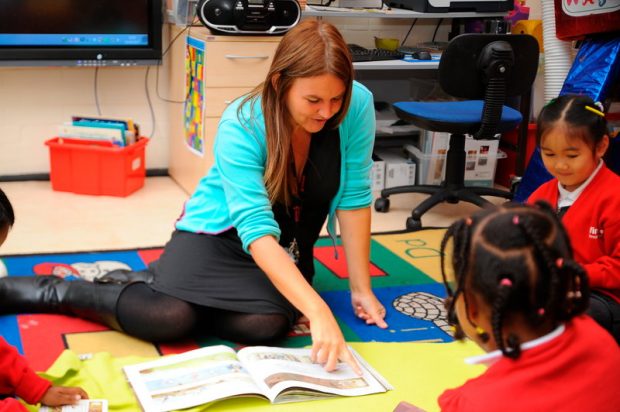
Helen Matthews, our Specialist Adviser, Initial Teacher Education, explains Ofsted’s role in quality assuring national professional qualifications and the early career framework.
It’s been a tough year for everyone in education. The pandemic has tested everyone’s resilience in so many ways, and the challenges of COVID-19 have emphasised just how invaluable good, well-trained teachers are to our education system recovery.
Earlier this year, the Department for Education (DfE) announced the roll-out of the early career framework (ECF) and a suite of reformed national professional qualifications (NPQs) for teachers and school leaders, available from autumn this year. As part of this, the DfE also confirmed that lead providers delivering the ECF and NPQs would be inspected by Ofsted, to make sure schools and teachers are getting the best possible support.
How it will work
We’re developing a framework for inspecting the delivery of ECF and NPQ training and will announce more details in autumn 2021. It will be aligned with our EIF and ITE inspection frameworks, and we’ll be talking to stakeholders as we develop our approach. We expect inspections to begin in spring 2022.
We will only inspect DfE-funded lead providers delivering the ECF and NPQ training programmes. However, we’ll also be engaging with teachers on the programmes, mentors, and a sample of delivery partners (for example, multi-academy trusts and teaching schools hubs) to help inform our assessment of a lead provider.
A force for improvement
As an organisation, we are committed to being a force for improvement in education. Quality assuring the delivery of the ECF and NPQs builds on our existing role inspecting initial teacher education and will give us oversight of teacher development for trainee, newly qualified and established teachers.
We support the ambition to improve training and development opportunities for qualified teachers, making teaching an attractive career that recruits and retains the best professionals. High-quality continuous professional development is good for school leaders and teachers. But most importantly, it’s good for pupils. And as everyone works hard to get children back on track, this couldn’t be more important.
Follow Helen Matthews and Ofsted on Twitter.
1 comment
Comment by Christopher Robertson posted on
Thanks for this update.
Can I also suggest liaising with the Department for Education with regard to how/if the inspectorate might be involved in quality assuring the National Award for Special Educational Needs Co-ordination (NASENCO)?
The National Award has been running since 2009 (updated learning outcomes published by the National College for Teaching and Learning and introduced in 2014).
The current SEND Code of Practice (2015) refers to the training requirements for SENCOs (in England) as follows:
6.85 The SENCO must be a qualified teacher working at the school. A newly appointed SENCO must be a qualified teacher and, where they have not previously been the SENCO at that or any other relevant school for a total period of more than twelve months, they must achieve a National Award in Special Educational Needs Co-ordination within three years of appointment.
6.86 A National Award must be a postgraduate course accredited by a recognised higher education provider. The National College for Teaching and Leadership has worked with providers to develop a set of learning outcomes. When appointing staff or arranging for them to study for a National Award schools should satisfy themselves that the chosen course will meet
these outcomes and equip the SENCO to fulfil the duties outlined in this Code. Any selected course should be at least equivalent to 60 credits at postgraduate study.
Is the DfE planning to integrate the National Award into the current/future 'suite' of national professional qualifications (NPQs)?
Christopher - Chair, The SENCO Forum, National e-community for special educational needs co-ordinators